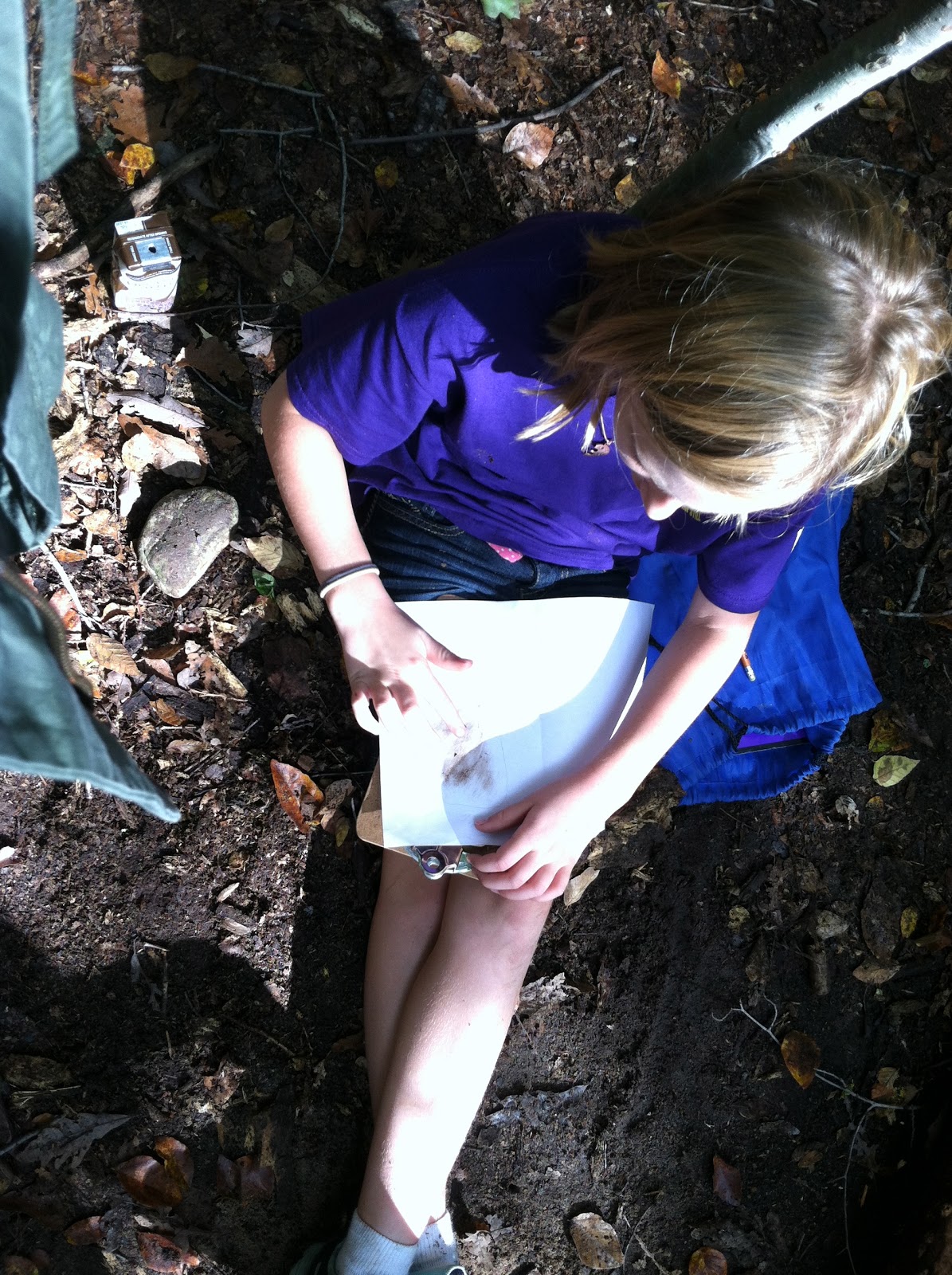 As I have been watching closely I see purpose and patterns in their work, they have already set themselves a focus. When they were smashing the rocks the students found that rocks were made of sediment or "sand". So one focus is to use this knowledge to rebuild rocks from the sediment. The children are mixing rock types together, adding water or freezing their mixtures. They are also experimenting with adding other substances to their sediment mixtures, and then checking under the microscope to see what they have made.
As I have been watching closely I see purpose and patterns in their work, they have already set themselves a focus. When they were smashing the rocks the students found that rocks were made of sediment or "sand". So one focus is to use this knowledge to rebuild rocks from the sediment. The children are mixing rock types together, adding water or freezing their mixtures. They are also experimenting with adding other substances to their sediment mixtures, and then checking under the microscope to see what they have made.Others have been experimenting with liquids available in the classroom. We have vinegar, hydrogen peroxide, baby oil, soda water and still water on hand. One student coated pieces of mica with each liquid to observe changes. She noticed that the vinegar seemed to be making the mica peel. She then checked the liquids with litmus paper and saw that vinegar was acidic, she thinks this may be significant. Others have been mixing their sediment with salt, with vinegar and with water to see what happens. Still more have been seeing if they can clean rocks with the various liquids.
 So as I watch, the focus they have set for themselves starts to evolve. They are wanting to see how rocks change, they are noticing the effects of different substances have on their rocks or sediment mixes. So as the teacher, this is the stage where I reach into my "pockets,'' my initial planning ideas on where I thought the children might go with the investigation. An idea I had, was weathering and erosion, they are already experimenting with chemical changes so I will set a new provocation and see where they go next.
So as I watch, the focus they have set for themselves starts to evolve. They are wanting to see how rocks change, they are noticing the effects of different substances have on their rocks or sediment mixes. So as the teacher, this is the stage where I reach into my "pockets,'' my initial planning ideas on where I thought the children might go with the investigation. An idea I had, was weathering and erosion, they are already experimenting with chemical changes so I will set a new provocation and see where they go next.










